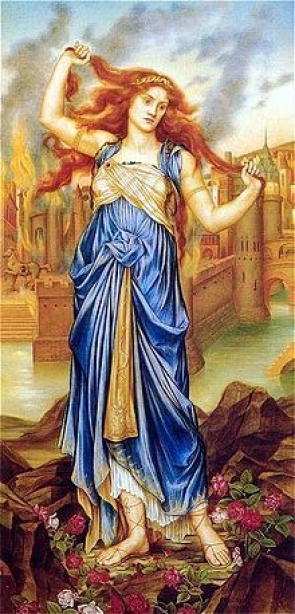
Cassandra is a Trojan princess, daughter of Priam and Hecuba. This is one of the most tragic images of the trilogy. Her tragedy is in possessing the gift of foresight. Cassandra knows what terrible end awaited her and seized her as a military booty of King Agamemnon. She tries to warn everyone about future misfortunes, but no one understands her language, and Cassandra tragically perishes at the hands of Agamemnon’s wife, Clytemnestra.
Cassandra is the most charming of the daughters of Priam and Hecuba, the prophetess, the twin sister of the priest Elena. One day, Apollo intended to divide the bed with her, but Cassandra refused him. The offended God took revenge in the way that from that moment no one else believed in her prophecy (Aeschylus, Agamemnon).
Together with his sister Elena, she predicted that the journey of Paris to Sparta would lead to a huge disaster, and subsequently persuaded a man to abandon the abduction of Helen the Great. However, nobody listened to her; everyone was mocking her like a madman. Apollodorod said that Cassandra had persuaded the Trojans not to believe the words of Sinon and didn’t enter Troy’s wooden horse in which the Achaeans were hiding. But she didn’t believe again. On the night of the fall of Troy, Cassandra sought shelter at the altar of Athens, but Ayakkis, the son of Oily, who had abetted her (Apollodorus), was cut off from him.
During Troy’s conquest, Cassandra was Agamemnon’s reward, who took her with him to Mycenaea, and during the long journey from Troy to Mycenae, she gave birth to his twins. After arrival to Mycenaea, she was killed by Clytemnestra, who saw her as a rival.
Cassandra in the Essays


Leave a Reply